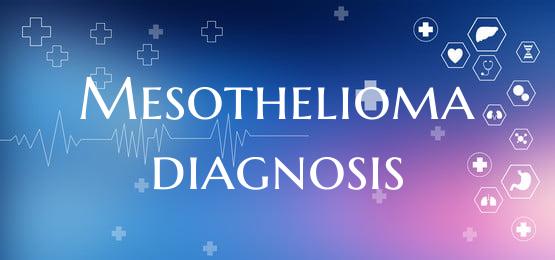
Mesothelioma diagnosis
Mesothelioma is a rare and aggressive form of cancer that primarily affects the lining of the lungs, abdomen, or heart. Diagnosing mesothelioma can be challenging due to its non-specific symptoms and long latency period. However, early detection is crucial for better treatment outcomes and improved quality of life for patients.
Here are common methods used in diagnosing mesothelioma:
1. Medical History and Physical Examination: The process often begins with a detailed medical history to understand the patient's exposure to asbestos, the primary cause of mesothelioma. A physical examination may also be conducted to assess any visible symptoms or abnormalities.
2. Imaging Tests: Various imaging tests such as X-rays, CT scans, and MRIs can help visualize the presence of tumors or fluid accumulation in the affected areas. These tests provide valuable information for diagnosis and staging of the disease.
3. Biopsies: A definitive diagnosis of mesothelioma usually requires a biopsy, wherein a sample of tissue is taken from the affected area for further examination. Biopsies can be performed through different methods, including needle biopsies, thoracoscopy, laparoscopy, or surgical biopsy.
4. Blood Tests: Although there is no specific blood test that can confirm mesothelioma, certain biomarkers such as mesothelin and fibulin-3 may be elevated in mesothelioma patients. These tests, along with others, can help in supporting the diagnosis.
5. Pulmonary Function Tests: These tests assess the functioning of the lungs and can indicate any abnormalities that might be associated with mesothelioma, such as reduced lung capacity.
6. Histopathology and Molecular Testing: Analysis of the biopsy sample by a pathologist is essential for confirming mesothelioma. Molecular testing may also be performed to identify specific genetic mutations that could impact treatment decisions.
Once a mesothelioma diagnosis is confirmed, further tests may be conducted to determine the extent of the disease and guide treatment planning. It is important for patients to work closely with a multidisciplinary team of healthcare professionals, including oncologists, surgeons, radiologists, and pathologists, to develop a personalized treatment plan tailored to their specific condition.
In conclusion, timely and accurate diagnosis of mesothelioma is critical for initiating appropriate treatment and improving patient outcomes. Increased awareness of the risk factors and symptoms associated with this rare cancer can help in early detection and better management of the disease.